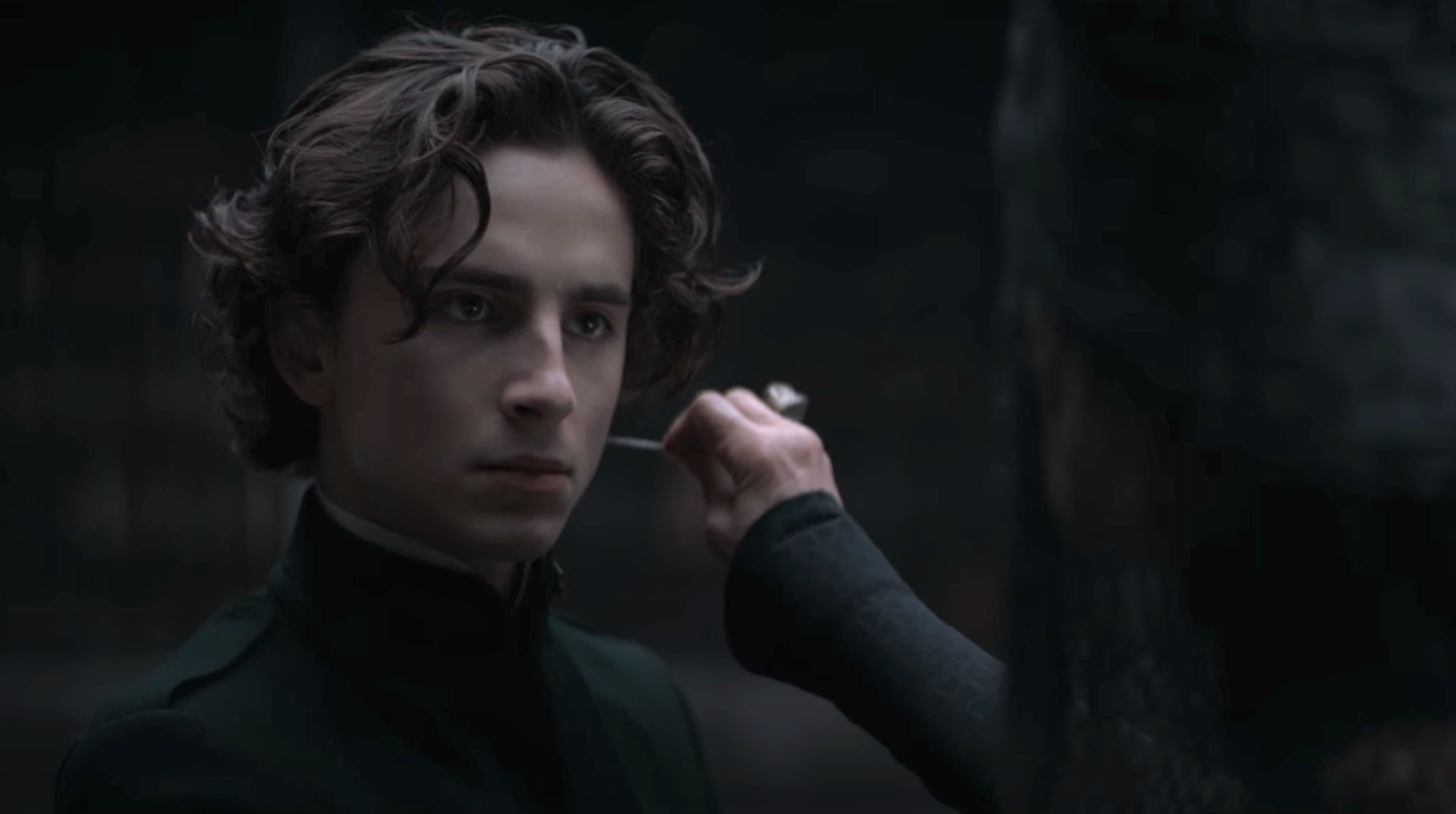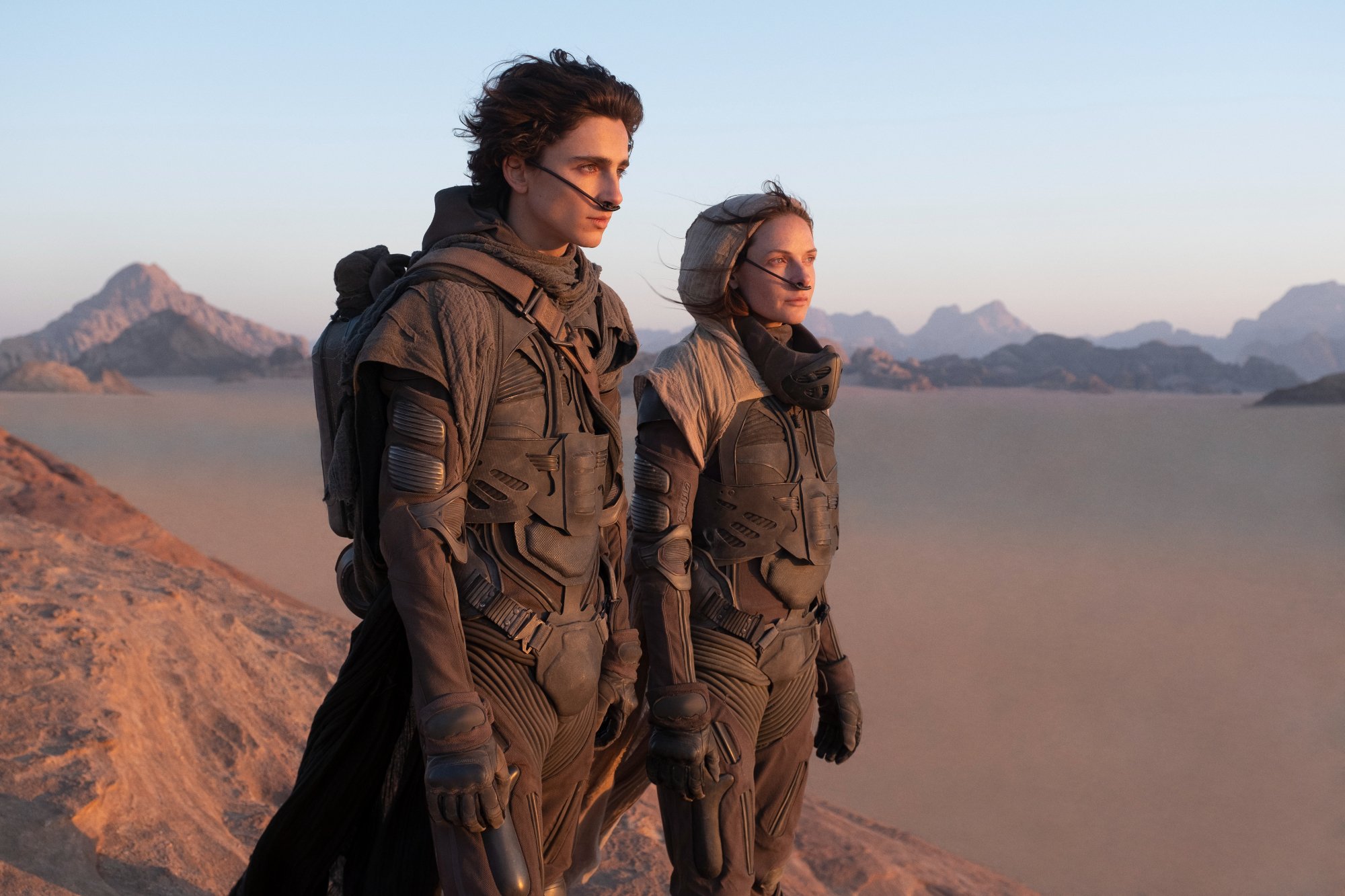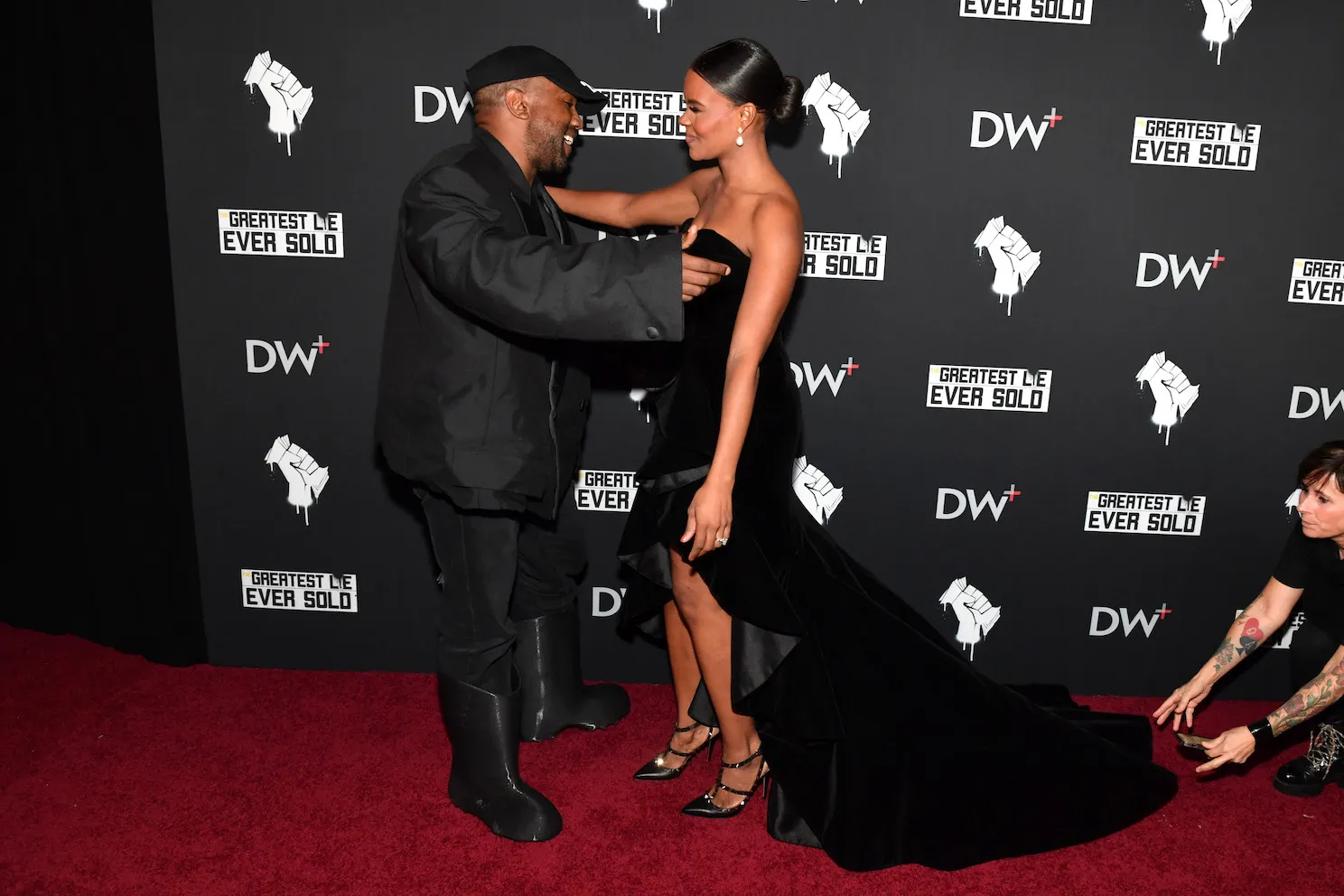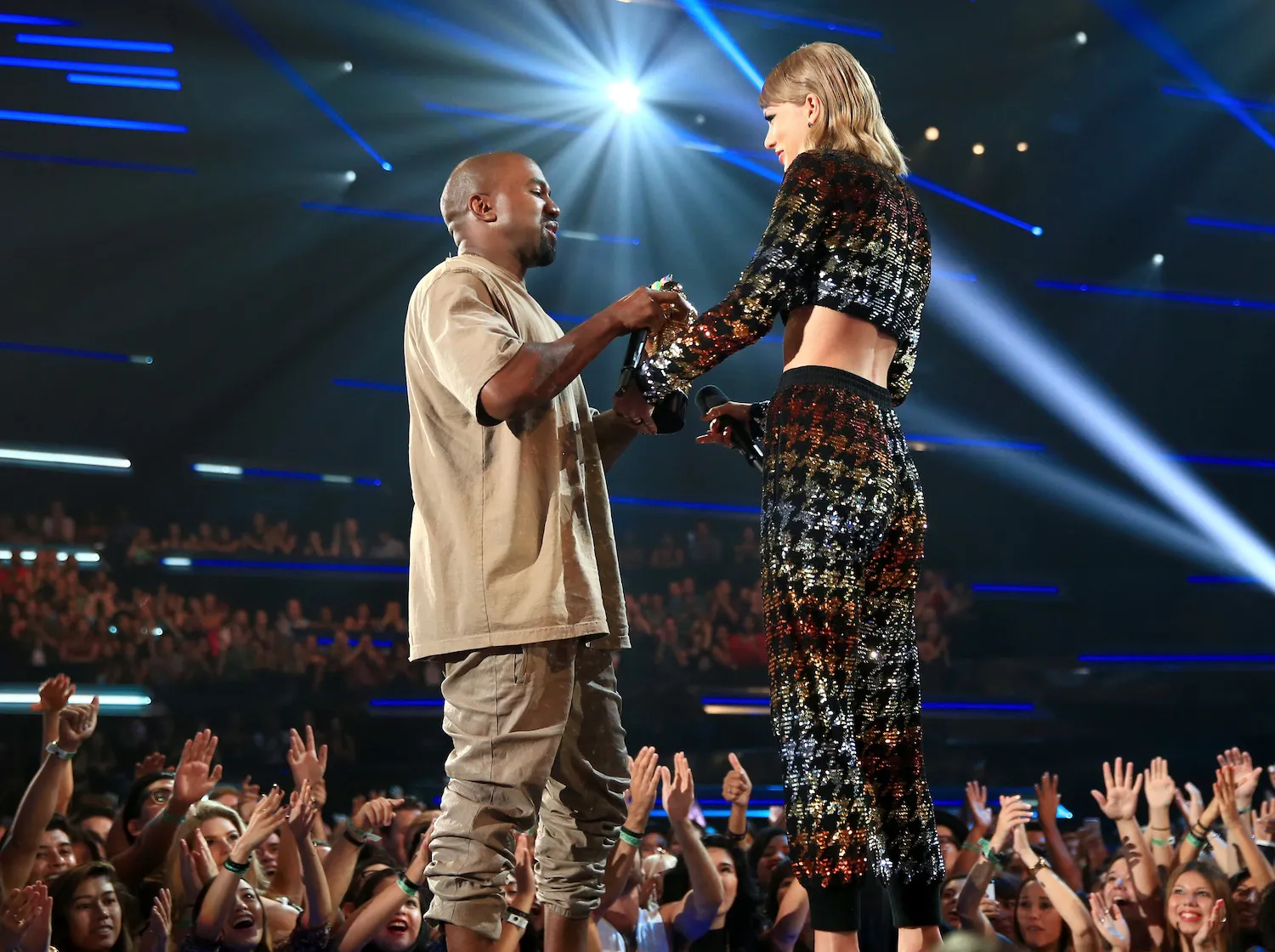‘Dune’ Gom Jabbar Scene Is One of the Film’s Most Important — Denis Villeneuve Explains Why
Of all of its captivating scenes, the Dune Gom Jabbar scene stands apart from the rest. It marks a pivotal moment early on in the sci-fi movie that the franchise can’t live without. Dune director Denis Villeneuve explained why it’s so important to the plot in a new video. And his comments make clear that all of Dune‘s plot hinges upon one moment when Timothée Chalamet’s Paul Atreides goes through a life-changing transformation.
[Spoiler alert: This article contains spoilers for Dune.]

‘Dune’ Gom Jabbar scene explained
The Dune Gom Jabbar scene comes early in the sci-fi film. In it, Rebecca Ferguson’s Lady Jessica brings her son, Paul, to the Atreides’ library, where the Reverend Mother is waiting for him. Charlotte Rampling plays the bone-chilling Reverend Mother Gaius Helen Mohiam, whose face is never fully seen through her black, beaded veil.
Lady Jessica and the Reverend Mother are both Bene Gesserit women. The Bene Gesserit is an ancient matriarchal society with powerful magical abilities. Among their many skills is the Voice, a form of auditory mind control. Rampling’s character uses the Voice on Paul in the Gom Jabbar scene to make him approach her and take the pain box test.
Paul must place his right hand inside the box and consent to the tremendous pain it will cause. If he tries to stop the pain, he dies by being pricked by the Gom Jabbar, a poisoned needle. Lady Jessica stands outside the room in horror as she awaits her son’s fate.
The Reverend Mother forces Paul to take this test to get a gauge of his abilities. The Bene Gesserit partake in a breeding program they use to help strengthen their influence in political affairs. Bene Gesserit can choose the sex of their children as part of their ancient breeding program, and they mostly produce girls.
Lady Jessica, Duke Leto Atreides’ concubine, went against orders by choosing to have a son with Leto. She wanted to produce the Kwisatz Haderach — a prophesied male Bene Gesserit who is essentially a messiah destined to rule the universe. The Bene Gesserit have been planning the arrival of the messiah for hundreds of years. Lady Jessica defied this plan for her own benefit.
‘Dune’ Gom Jabbar scene marks a key transformation in Paul Atreides
The Dune Gom Jabbar scene is one of the most iconic scenes from the first Dune book, published in 1965. Villeneuve told Vanity Fair his interpretation of it ended up looking almost exactly as his 14-year-old self imagined it while reading.
In it, the Reverend Mother is testing whether or not Paul could be the Kwisatz Haderach. After suffering through immense pain, there’s a visible shift in Paul. Hans Zimmer’s score intensifies the moment Paul locks eyes with the Reverend Mother, who didn’t believe Paul was the messiah. Villeneuve said of this moment:
“Here it’s a very, very, very important, key moment in this scene. Paul is put under so much pain, something deep inside his subconscious that was hidden there will go closer to the surface. The presence of what we call the Kwisatz Haderach, kind of a super being. I think in this scene we have to feel that the Reverend Mother would love to kill Paul. But she will not because she will witness something here.
In this very moment, we can see in Charlotte Rampling’s eye here that she has doubt, that she has the birth of a fear that he could be maybe the one.”
“Paul is taking the upper side of the scene,” Villeneuve added. “Coming out from this very specific close-up where we feel that he channels something that he was not expecting.”

Denis Villeneuve danced while watching Timothée Chalamet’s acting
Filming this transformative moment in the Dune Gom Jabbar scene is when Chalamet proved he was perfectly cast. Villeneuve told The AV Club:
“I saw this transformation in Timothée. When I saw that power rising into what he brought to the character, I saw with my own eyes Paul Atreides becoming something else. And, when that happened, Timothée didn’t see me, but I was dancing behind the camera. I was like, ‘Oh, my god, he was so great. He is so powerful. I’m so deeply happy. Thank you, gods of cinema. I didn’t f*ck it up; I cast the right Paul Atreides!'”
Dune is now in theaters and on HBO Max.


